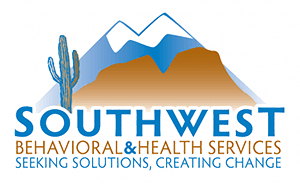K-3 Grade
Kindergarten thru 3rd Grade
5-to-8-year olds are still tied to family and eager to please, but they're also beginning to explore their individuality. In addition, your grade-schooler begins to spend more time at school and with peers and to collect information (including messages about drugs and alcohol) from lots of new places. It's very important to continue talking to your child about a healthy drug-free lifestyle and stress that of all the voices your child hears, yours should be the guiding force.
Here are 8 tips to connect with your child at this age:
- Keep your discussions about tobacco, alcohol, and other drugs factual and focused on the present. Long-term consequences are too distant to have any meaning. Let your child know that people who drink too much alcohol get sick and throw up, or that smoking makes clothes stink and causes bad breath.
- Talk to your kids about the drug-related messages they receive through advertisements, the news media, and entertainment sources. Some TV shows or movies may even glamorize drug use. Remember to ask your kids how they feel about the things they've heard — you'll learn a great deal about what they're thinking.
- Consider the following topics when discussing drugs with your child: what alcohol, tobacco and other drugs are like; why drugs are illegal; what harm drugs can do to users.
- Set clear rules and behave the way you want your kids to behave. Tell them the reasons for your rules. If you use tobacco or alcohol, be mindful of the message you are sending to your children.
- Work on problem solving by focusing on the types of problems kids come across. Help them find long-lasting solutions to homework trouble, a fight with a friend, or in dealing with a bully. Be sure to point out that quick fixes are not long-term solutions.
- Give your kids the power to escape from situations that make them feel bad. Make sure they know that they shouldn't stay in a place that makes them feel uncomfortable or bad about themselves. Also, let them know that they don't need to stick with friends who don't support them.
- Get to know your child's friends — and their friends' parents. Check in by phone or a visit once in a while to make sure they are giving their children the same kinds of messages you give your children.
- Sign your kids up with community groups or programs that emphasize the positive impact of a healthy lifestyle. Your drug-free messages will be reinforced — and your kids will have fun, stay active and develop healthy friendships.
Substances in your K-3 child's world can include:
Tobacco, Alcohol, Ritalin.
Scenario
Your child has expressed curiosity about the pills she sees you take every day—and the other bottles in the medicine cabinet.
What to Say
Just because it’s in a family’s medicine cabinet doesn’t mean that it is safe for you to take. Even if your friends say it’s okay, say, “No, my parents won’t let me take something that doesn’t have my name on the bottle.”


